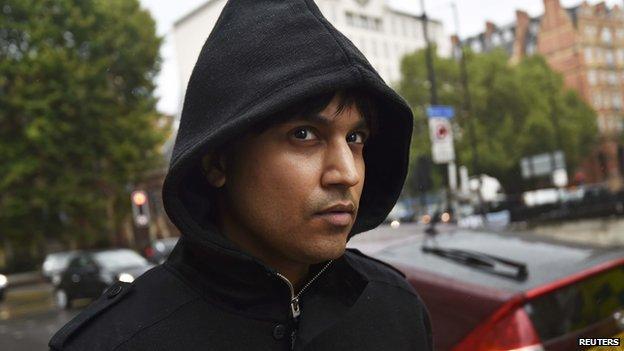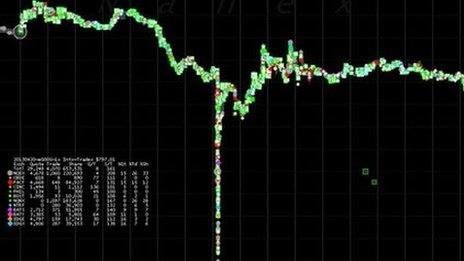'Flash crash' trader extradition hearing to go ahead
- Published

Navinder Sarao accused of using software to "spoof" markets
Navinder Sarao, the so-called "flash crash" day trader, has failed in his bid to postpone his US extradition hearing.
He has been accused by US authorities of market manipulation that contributed to the 2010 Wall Street "flash crash".
Mr Sarao was arrested by UK police in April after being charged by the US Justice Department.
After spending four months in custody, he was released on bail earlier this month.
Mr Sarao's lawyer, James Lewis, told Westminster Magistrates Court on Friday that he needed more time to obtain expert evidence about trading and how the market worked.
He said that evidence would help him address whether his client had made false representations through his trading activity.
However, District Judge Quentin Purdy rejected the application. He said expert evidence was not relevant to the decision he had to make - whether the US charges would also be offences under English law.
The extradition hearing remained set for 25 September.
The "flash crash" on 6 May 2010 sent the Dow Jones Industrial Average briefly plunging by more than 1,000 points before recovering.
Mr Sarao, 36, is accused of using software to "spoof" markets by generating large sell orders that pushed down prices.
He then cancelled those trades and bought the contracts at the lower prices, making roughly £27m in profit, US authorities allege.
Mr Sarao has denied wrongdoing and told the Westminster court in May: "I've not done anything wrong apart from being good at my job."
- Published14 August 2015

- Published22 April 2015
